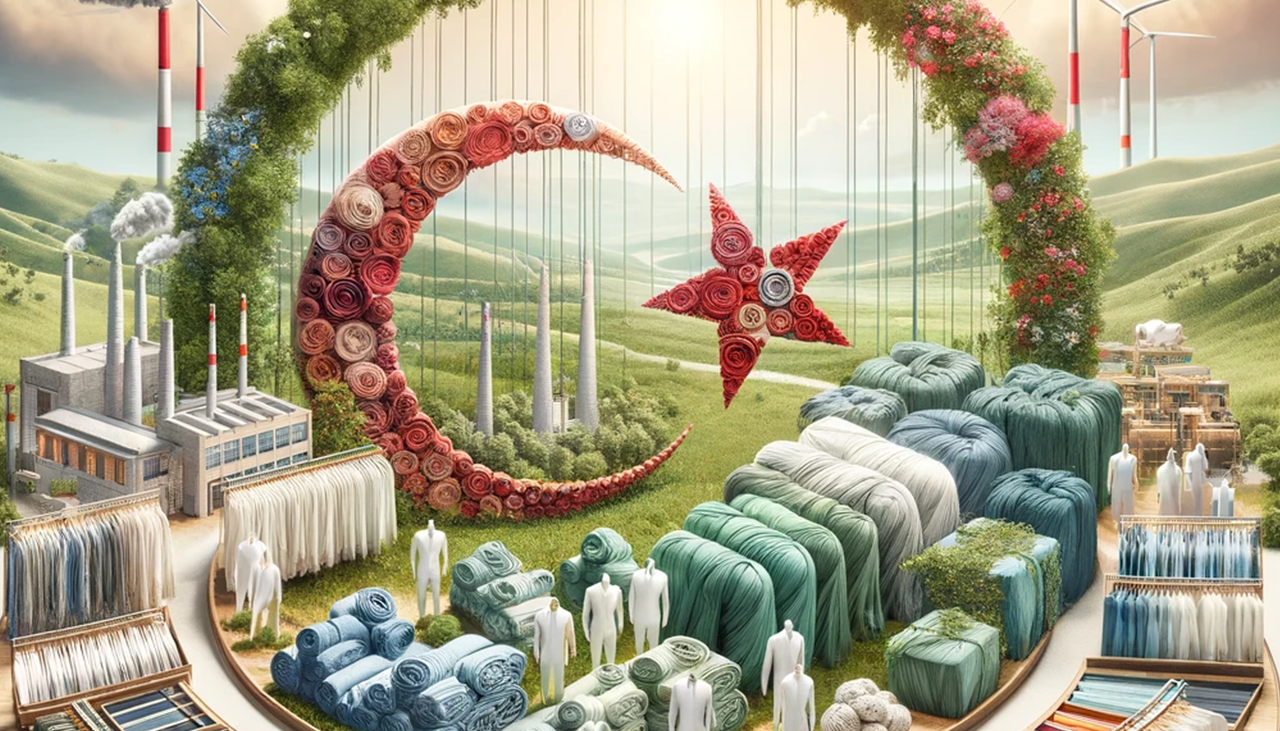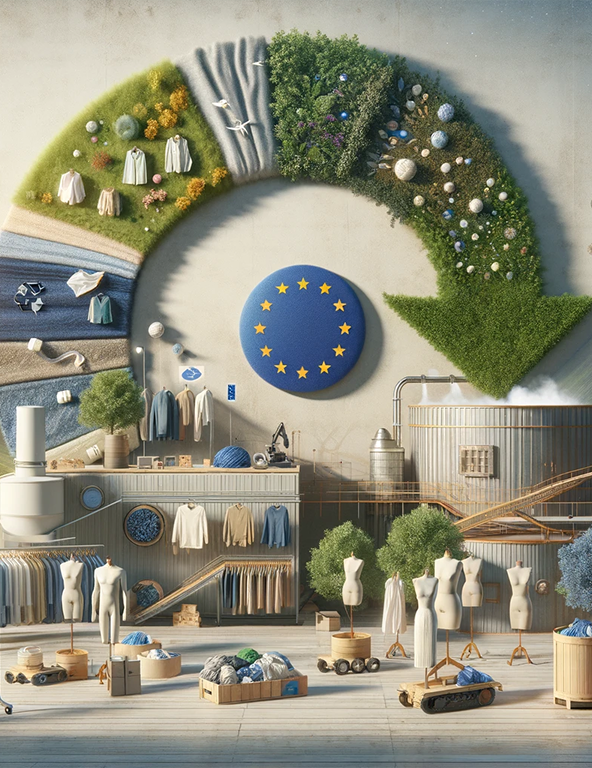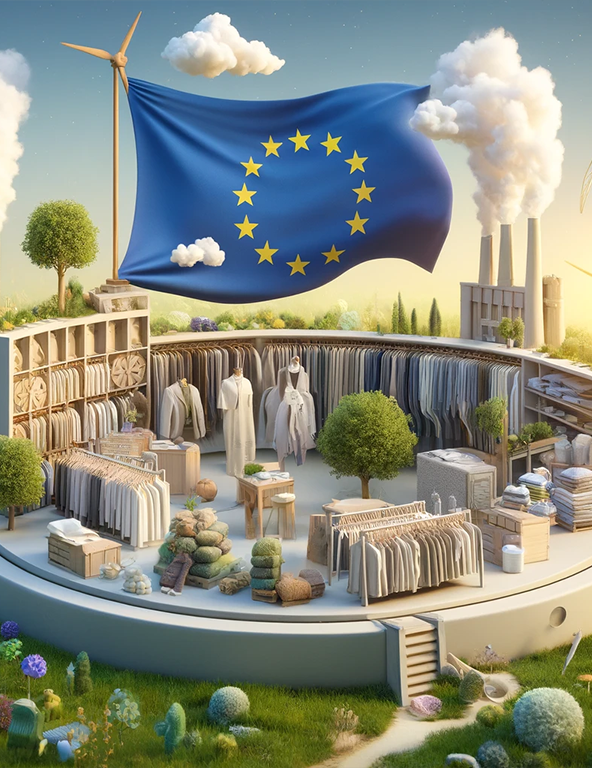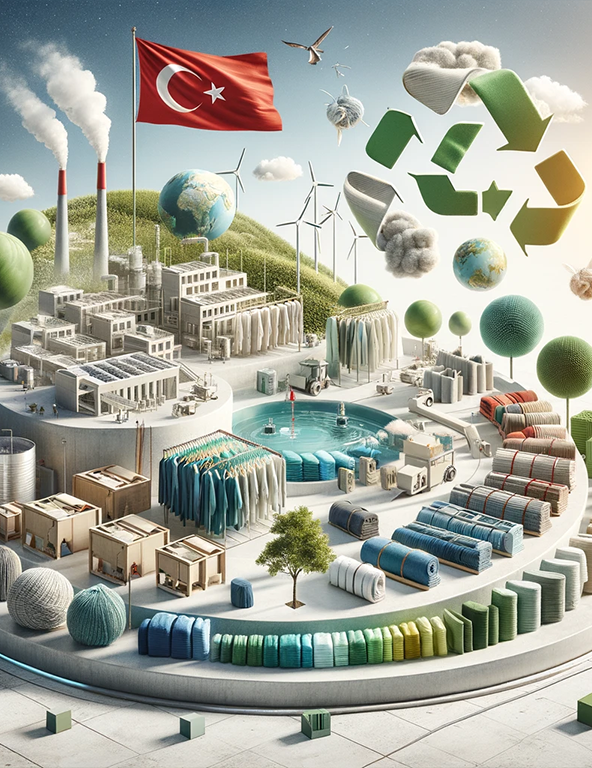Sustainability for Apparel Industry


The concept of sustainability is of great importance not only in terms of its environmental and ecological dimensions, but also in terms of its social dimension. In other words, a sustainable industry should consider employee rights and environmental factors together. In this context, the Ready-to-Wear and Apparel Industry, which offers extensive employment opportunities globally, should also focus on social factors such as employee rights, fair wages and good working conditions. In addition, consumers' tendency towards ethical and sustainable options is an important driving force for the industry to adopt sustainable practices. Therefore, sustainability is no longer an option, but a necessity for the ready-to-wear and apparel industry.
Again, it is emphasized that the declarations and labels made in sustainability discussions should be arranged in a way that encourages consumers to be more selective in sustainability issues, without being misleading and within certain standards. This situation necessitates the inclusion of sustainability in the entire supply chain and product life cycle from a broad framework that includes the raw material supply to the post-consumer stages where the consumer disposes of the product.
The European Green Deal (GDR), which entered the agenda of our ready-to-wear and apparel sector in 2019, has therefore initiated a new transformation process in which manufacturers can experience sustainability in the most comprehensive way, first in their production and business models and then in their entire value chain approaches related to the product.
Within this framework, while targeting sustainability in the ready-to-wear and apparel industry, it is possible to focus on the sectoral effects of the GDR legislation under three main axes: "Sustainability Management", "Sustainable Production" and "Sustainable Supply Chain".
Sustainability Management involves developing strategies for businesses to effectively manage and reduce their environmental and social impacts. The industry encourages the establishment of a sustainability management system that calculates the environmental footprint, sets reduction targets and reports them in a harmonious manner to the entire supply chain, with a communication strategy based on strong corporate social responsibility and human resources management. Sustainability Management also points out that monitoring and improving sustainability performance is a continuous process.
Sustainable Production aims to use natural resources in the most efficient way and minimize waste, while also including the goal of reducing energy and resource use in the production process. It also aims to reduce the environmental impact of products by limiting the use of harmful chemicals in raw material supply and focusing on climate and environmentally friendly alternative materials. Digitalization is emerging as a key element of sustainable production in ready-made clothing and apparel production. The concept of eco-design, which entered the sector as a new concept with AYM, will require a new design approach with a holistic view from raw material to final product.
Sustainable Supply Chain will require businesses to manage their entire supply chain sustainably, starting with their suppliers and extending into the post-consumer life stages of the product. This aims to collaborate with purchasing groups-brands-retailers and put the consumer at the center, with the aim of reducing waste and energy use, creating a supply chain that is sensitive to people and the environment, and improving labor standards. These practices will reduce the environmental and social impact of the apparel and clothing industry, while also providing more sustainable and ethical options to all consumers globally.

The European Green Deal (GDR) is a comprehensive strategy determined by the European Union (EU) to combat climate change and sustainability. This strategy determines the steps to be taken to achieve the EU's carbon neutrality target by 2050 and aims to make the EU economy more sustainable. In this context, it determines the EU's policies and measures for a more sustainable future in economic, social and environmental terms.
Click here to access the relevant EU page.
The European Commission adopted the new Circular Economy Action Plan under the title of the Constitutional Court in March 2020. The main objectives of the EU Circular Economy Action Plan are:
- Strengthening product design with innovation and R&D studies and increasing circularity;
- Informing buyers and thus directing individual consumers and public procurement towards sustainable products;
- Increased circularity in production stages, which are the stages where most waste is generated.

The EU Sustainable and Circular Textiles Strategy was published by the European Commission on 30 March 2022 to create a more sustainable and circular structure in the textile sector. The strategy aims to implement the commitments made under the European Green Deal, the Circular Economy Action Plan and the Industrial Strategy and to create a greener, more competitive and modern sector that is more resilient to global shocks.
Click here to access the relevant EU page.
The Turkish Ready-to-Wear and Apparel Sector Sustainability Strategy and Action Plan is a strategy and action plan developed to comply with the sustainability policies and legal regulations adopted in the EU, which is the most important export market for our sector. In this way, our sector aims to maintain and develop its competitiveness in both the EU market and the global supply chain by making the green - digital - circular transformation possible in a timely manner, and at the same time to be a sector that is aware of its responsibilities in sustainability issues.

